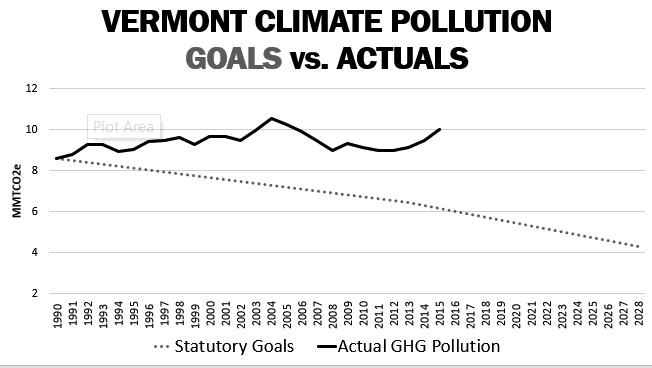Session preview on climate action
 Rep. Mike Yantachka
Rep. Mike Yantachka
The Vermont Legislature convened in Montpelier this week for the second half of the biennium, i.e., the two-year legislative term between elections. Legislative work did not stop when the session adjourned in May. Off-session work includes constituent assistance as well as study committees, oversight committees and workgroups that meet either in official capacity or to prepare for the coming session. Some of our unfinished business from 2019 will be on the agenda early in the session, including increasing the minimum wage, establishing a paid family leave insurance program and creating a tax and regulate system for cannabis sales in Vermont.
I’m also looking forward to working with my colleagues once more to take significant steps to address the climate crisis through Vermont’s energy policy.
Over the last two years more and more focus has been on what effects human consumption of fossil fuels has had on the global climate. Extracting and burning fossil fuels like coal, oil and natural gas emit enormous amounts of carbon dioxide, methane and other greenhouse gases (GHGs) that build up in the atmosphere and increase the average global temperature. In recent years we have seen the effects in more intense hurricanes, heavier rainfall and flooding, more persistent heat waves, droughts, and wildfires in the west. Melting glaciers and icecaps have contributed to measurable sea level rise leading to “sunny day flooding” in some coastal communities. These effects drive costs higher for everyone, including Vermonters.
Climate scientists have overwhelmingly concluded that we have only a limited amount of time to act decisively to limit global warming and its effects on our environment, health and economy. Last year Vermonters joined people all over the world in climate demonstrations demanding that governments do something about climate change.
Several years ago, a group of legislators from the House and Senate formed the Climate Solutions Caucus. This group, now numbering more than 60 members, is committed to take meaningful steps to reduce Vermont’s contribution to the climate crisis. The Paris Climate Accord of 2015 calls for a 50 percent reduction of GHG emissions from 1990 levels by 2028. This goal was adopted by both the Shumlin and the Scott administrations.
In contrast, however, Vermont’s emissions as measured by the Department of Environmental Conservation have instead risen by 16 percent. We have to bend that curve by addressing the biggest sources of GHGs in our economy: transportation and heating. This will help Vermonters to save money by living in more efficient homes and driving more efficient vehicles.
While we took some steps in 2019 to help reduce Vermont’s emissions, including starting an EV incentive program and increasing funding for low- and moderate-income residential weatherization, we know we have to do more. The Climate Caucus held several workgroup sessions over the summer to identify further steps we can take. Converting our renewable energy and energy transformation goals from the 2017 Comprehensive Energy Plan into statutory requirements by passing the Global Warming Solutions Act is the first step. To make our older housing stock more efficient for heating and cooling we’ll have to accelerate weatherization assistance to homeowners and landlords. Changing Efficiency Vermont’s mission to include using funds for moderate-income weatherization through the All Fuels Initiative will also be part of the solution.
Transportation, at 43 percent of emissions, is the largest GHG contributor. We must continue to reduce transportation emissions by supporting EV purchases, electrification and expansion of mass transit options, expanding park-and-ride facilities, and promoting transportation alternatives like bicycling and walkways. We also know that Vermont can’t combat climate change alone. Alone our emissions are relatively small, but we have a responsibility to do our part.
With the approval of Governor Scott, Vermont joined with 12 other Eastern states from Maine to Virginia and the District of Columbia to consider a regional program to reduce GHG emissions from transportation. This program, called the Transportation and Climate Initiative (TCI), would be a “cap and invest” system. Details of the design were released this December, and the Legislature and administration will be working together to integrate this effort into Vermont policy. Reducing emissions will not only benefit the climate but will also reduce carcinogenic volatile organic compounds (VOCs) and asthma aggravating particulates in the air we breathe.
I plan to write more about these actions in the future as they develop. I welcome your emails, phone calls at (802) 233-5238 or in-person contacts. This article and others can be found at my website.
If you enjoy The Charlotte News, please consider making a donation. Your gift will help us produce more stories like this. The majority of our budget comes from charitable contributions. Your gift helps sustain The Charlotte News, keeping it a free service for everyone in town. Thank you.
Bill Regan, Chair, Board of Directors

